You may have heard someone say this magical and mysterious word at some point; Motor Planning.
What is it, and why is it so important?
Motor planning is the ability to assess, plan, and organize a motor activity, and then implement the motor skills to achieve that activity.
To accomplish all these steps, your child has to hear the words correctly, mentally picture the movement, and then coordinate the correct arm and leg activity to make that action happen with the correct amount of force.
For some children, this can come easily: we say, “Please kick the ball to the end of the yard,” and Bobby executes a beautiful kick, never losing control of the ball.
However, what happens if Johnny did not hear the word “kick” correctly, doesn’t understand how to make the kick happen, cannot follow through, or doesn’t understand how to move his arms and legs to achieve the task? He trips on the ball, gets frustrated and runs back into the house crying, or rejects the very idea of wanting to play ball again.
We have to recognize as parents that each child needs to learn in his or her own way, and there are going to be tasks that come easily while others are very complex to learn. Be patient with your child and appreciate what they can give you when they can give it.
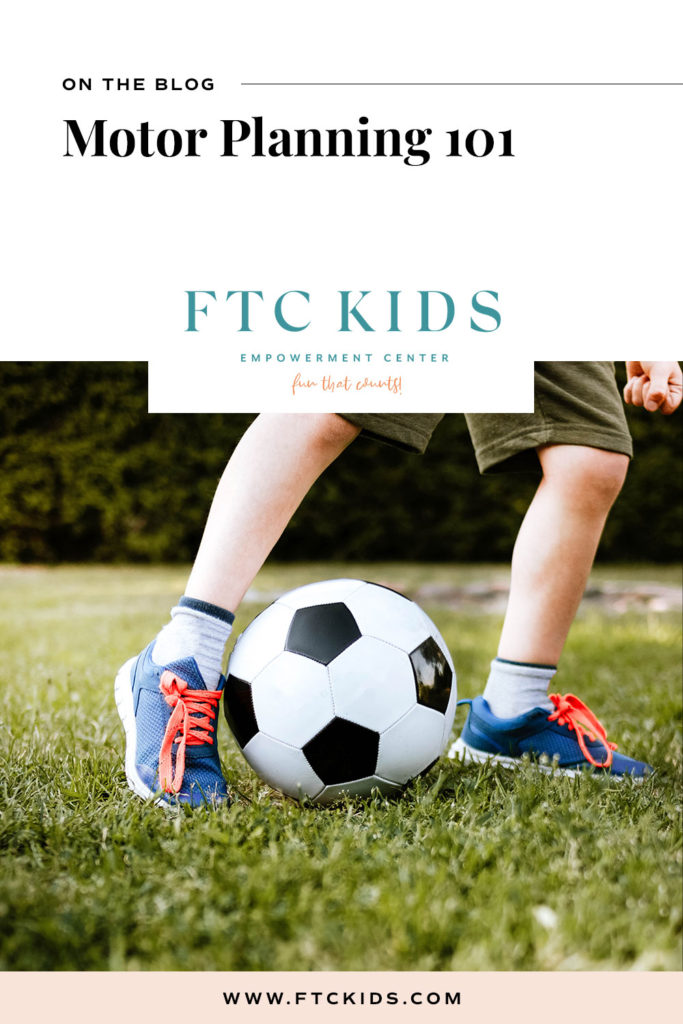
If you read my last blog on manual handling, you know that handling a baby when you first bring them home can feel foreign until you learn what your child likes so you can achieve a level of comfortableness.
We don’t expect our children to say, ‘”Hi, mom. I love you. What’s for dinner?” at one year of age. They start the process by babbling single sounds until they can combine those sounds to form a word, and those words together to form a sentence. Learning motor skills function in exactly the same way. We start with single movements that we then put together to create very complex actions.
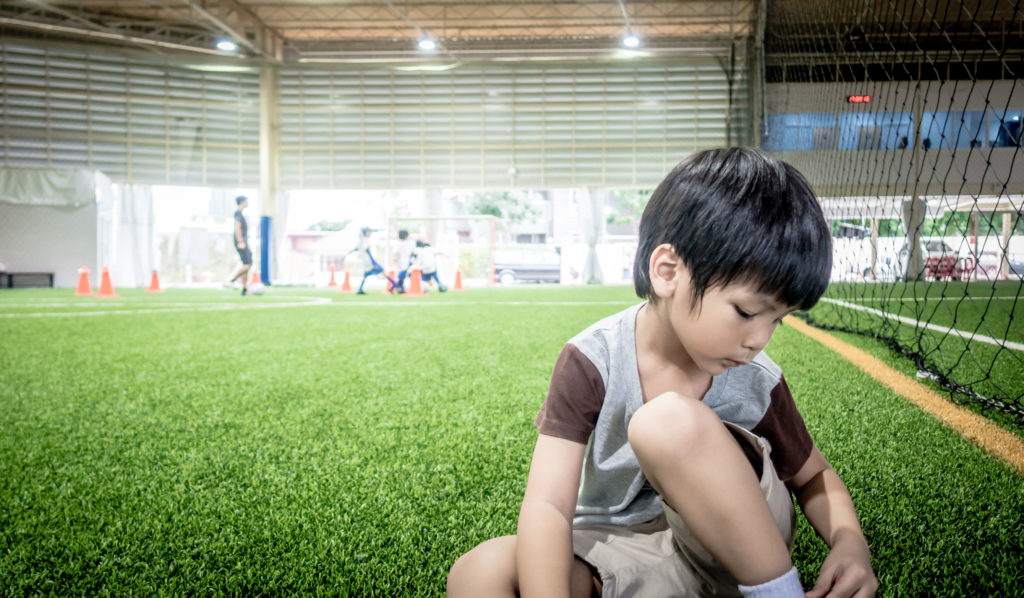
Let’s say you’re playing soccer with your 5-year-old in the backyard, but he just can’t seem to get it right.
You’ve been telling him for the past 10 minutes that he’s doing it wrong. WHY can’t he just do the task based on what you’re telling him?
You say, “Kick with the right leg,” but he lifts the left. You say, “Kick it over here,” and he kicks it in the opposite direction.
You say, “Just stand up,” but he falls down, and now he has grass stains on his pants and cries because he’s hurt his bottom.
There are many reasons why a child is unable to take your feedback and translate it into immediate results. You have to take into consideration how your child learns best and which factors affect his ability to take feedback and improve his actions.
In the first stage of motor learning, your child is attempting to perform actions that are somewhat coordinated in an effort to achieve a task.
Some attempts will be successful, but a majority may be unsuccessful if he or she is not yet skilled at performing the task. The movements may still be crude and inefficient.
During this stage, Johnny may need the task broken down into very small parts and then combined as one smooth action.
He may need you to physically guide him through the task until his body recognizes how it’s moving and learns to control or imitate the same movement.
This stage of learning is where your physical therapist or occupational therapist can help you troubleshoot and provide exact guidance about breaking down the task for practice at home.
- Imagine this scenario: Johnny tries to kick a soccer ball but aims too high and misses; he kicks to low and digs the grass. He then lifts his foot and falls over. Now you’ve gone over and lifted his foot and helped him to make contact with the ball using the right arc of motion. After 10 minutes and a whole lot of bribery, he finally makes contact with the ball on his own and moves it three feet forward! CHEER, as if he has just scored a goal in the World Cup! That little bit of contact is what his brain and body needed to start making the stronger connections that will allow him to actually kick the ball to you someday.
In the second stage of learning, your child will be developing consistency, learning how to use the movement efficiently and generalizing the skill to different environments.
- Imagine this: You’ve been working on kicking in your living room, first with a beach ball and then with an actual soccer ball, for the past five weeks. Johnny is finally making contact with the ball consistently and able to kick it 5 feet to you. He’s not falling over! WOOOOO HOOOO! Now it may be time to take the ball outside and try on the grass, the sidewalk, or the driveway. You may even be able to change other elements of the game, such as changing your own position for Johnny to kick to you. You may also increase your distance to see if Johnny can adjust how hard or softly he kicks it. All of these changes will help him to generalize the skill of kicking.
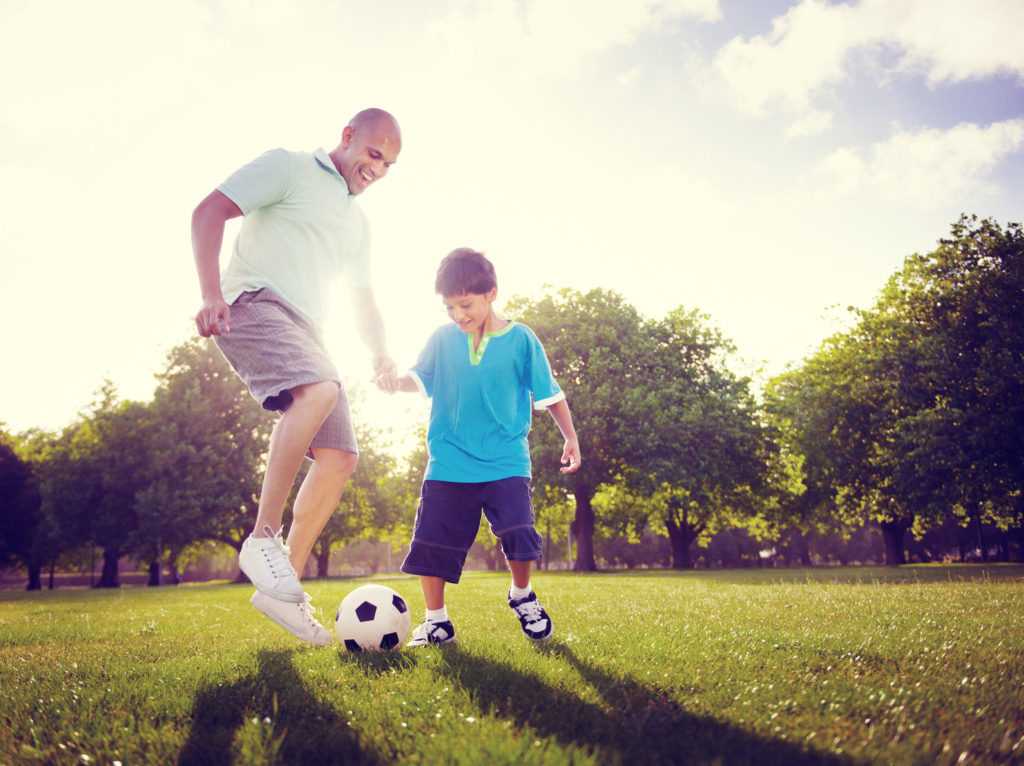
When a child is learning a task and trying to commit it to his motor memory, keep in mind that they are not little professional sports players (yet).
These skills are new, and haven’t become as routine as walking. Each time you change a variable, Johnny may look uncoordinated and have a difficult time.
Johnny’s brain is working hard to account for changes and make adaptations, but that takes a lot of work. Make sure that you praise your child’s effort instead of only the result.
The type of feedback you give (knowledge of performance or knowledge of results) will make a difference in your child’s ability to modify and change his tactics.
In the second part of this blog, you will learn how different types of feedback can impact Johnny’s ability to improve his skills.
You may be wondering what makes me qualified to speak on such a topic, but as a physical therapist teaching children how to control and move their bodies, I’ve had more than a decade of learning, failure, and success.
Each day, I make some adjustments, altering my approach or feedback. I also have an almost unreal positive attitude.
Most importantly, as a parent of a child that struggles with gross motor skills, I can speak from personal experience. My PT mommy brain doesn’t always work on my own child.
I can feel frustrated when she doesn’t understand my cues, moves the wrong way, or completely misunderstands what I say. I feel sad that she can’t keep up with friends or takes an extra year to learn something that her peer mastered in six weeks.
Dealing with motor challenges is a team effort and takes a significant amount of patience.
However, I promise you that all the effort, pain, frustration, boo boos, tears, and cheers will be well worth it. I live those failures and successes every day at work and at home, just as you do.
Keep up the hard work because, at the end of the day, there is no greater satisfaction than knowing you did everything in your power as a parent to develop your child’s potential.

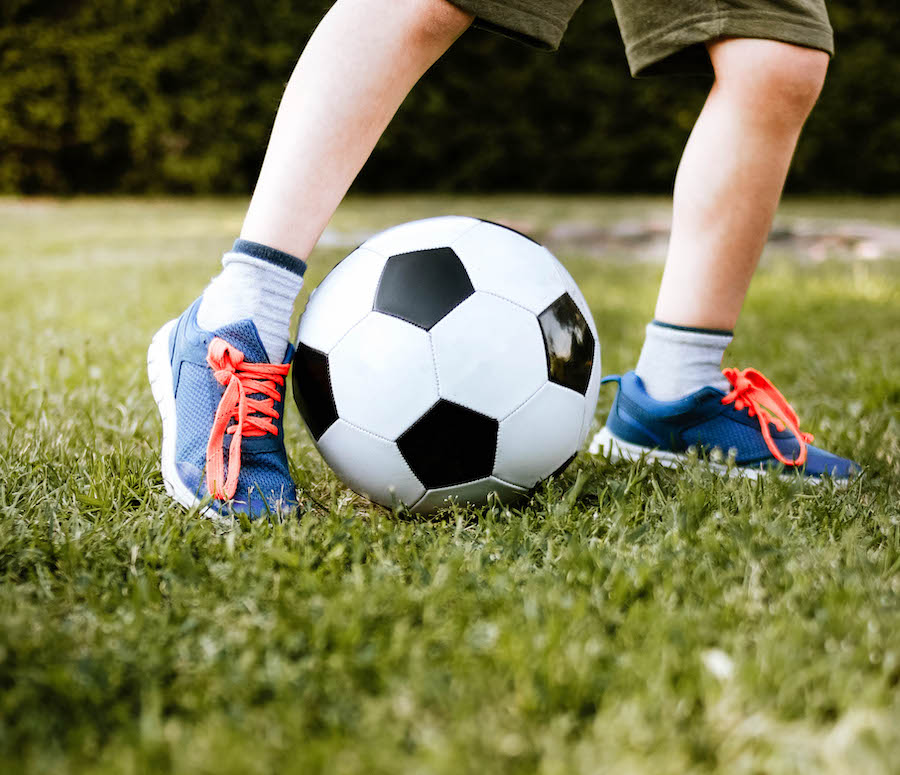
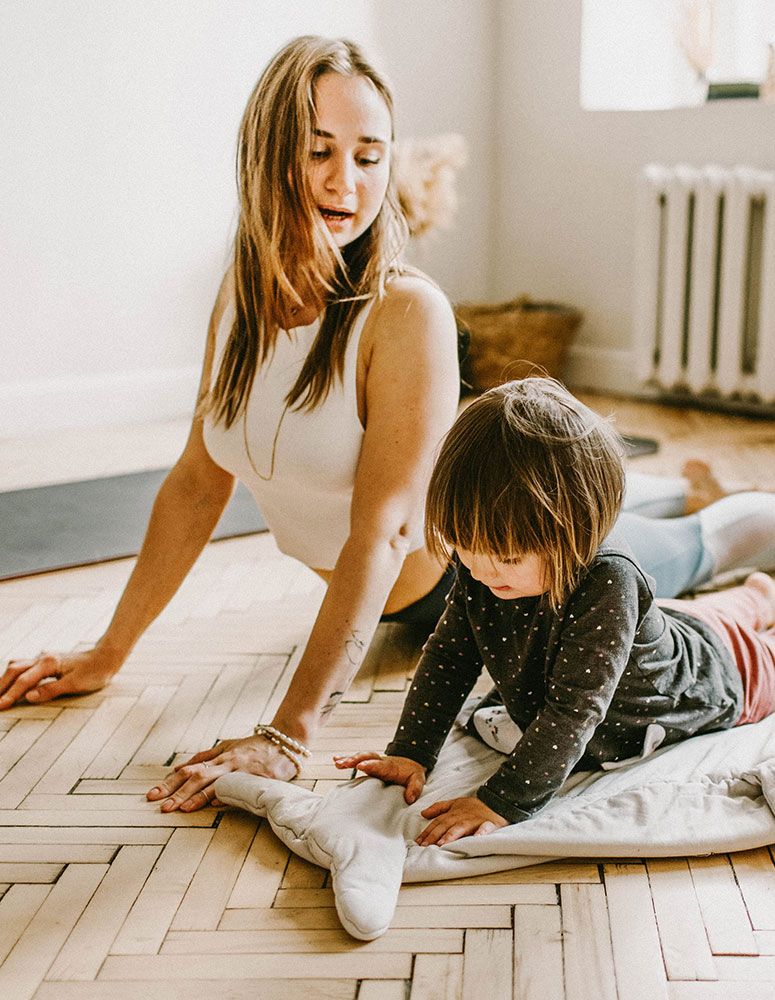


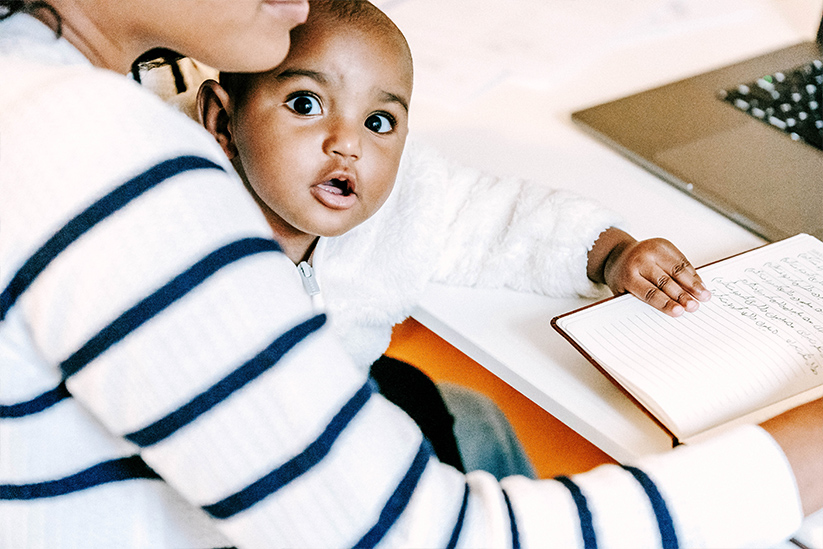
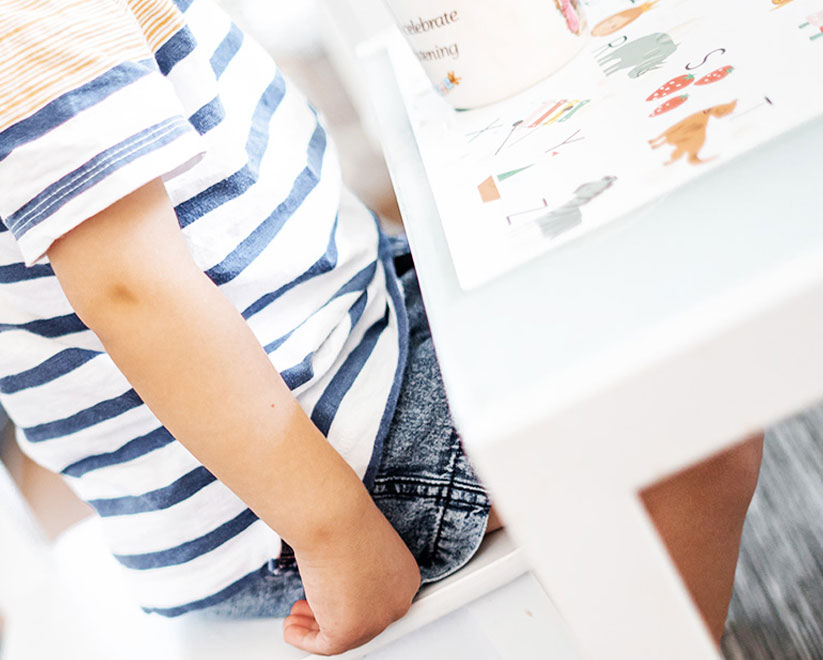


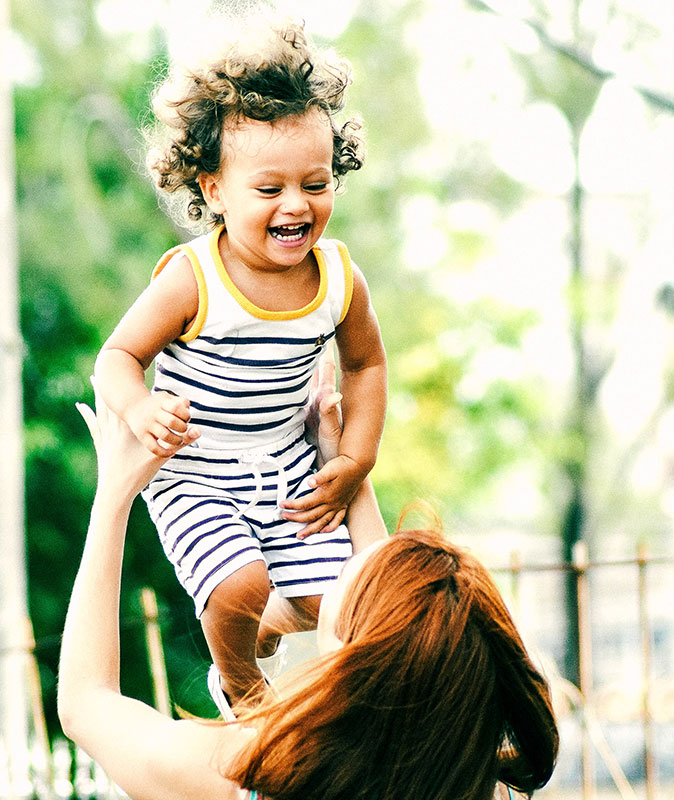
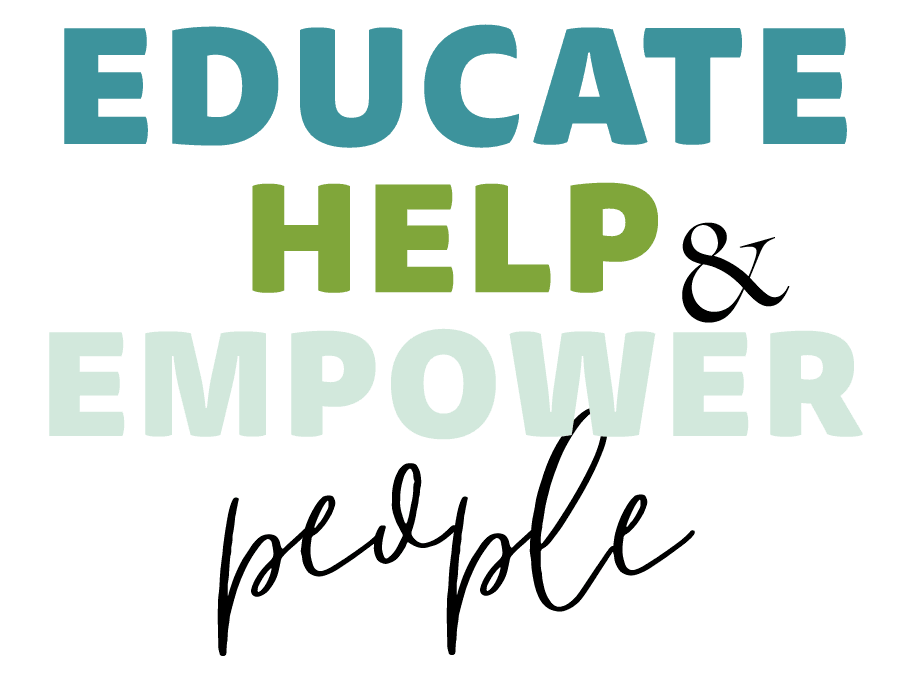
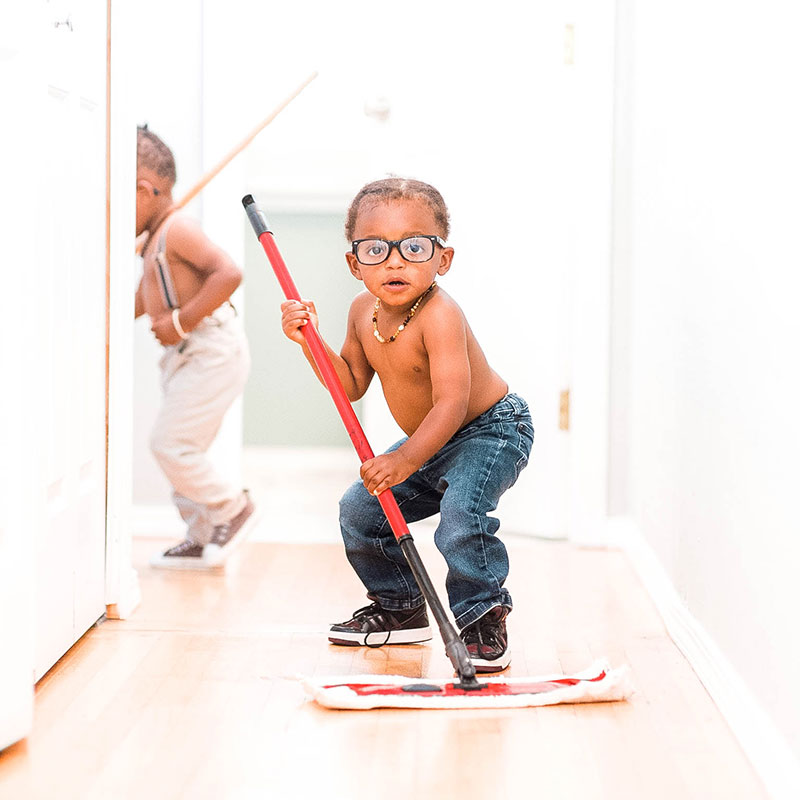
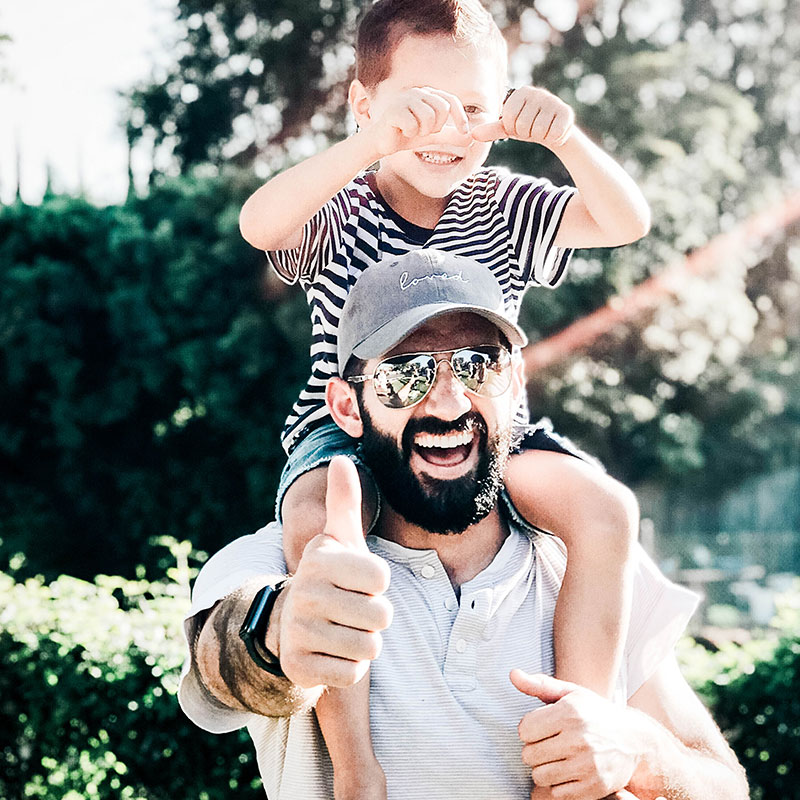


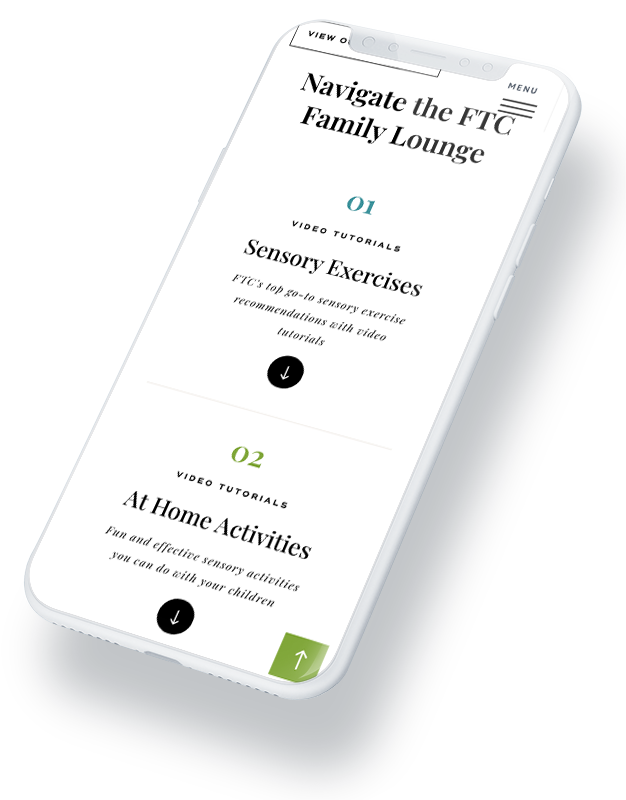



Comments
0 Comments